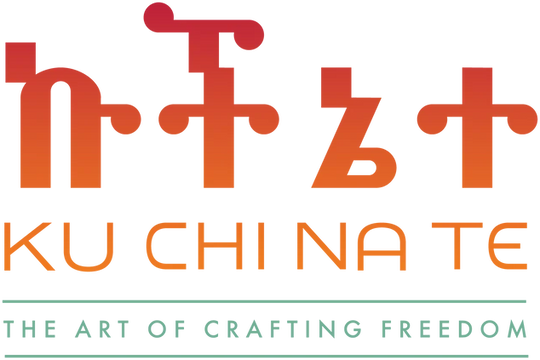Intertwined Journeys
The Kuchinate African refugee women's collective is proud to host the exhibition "Intertwined Journeys", at our temporary gallery space on 26 Gordon St., Tel Aviv.
Sandra Weil is curating works by artists that relate and respond in some way to the African asylum-seeking community in Israel. She is a curator and president of the board of the Kuchinate African refugee women's collective. For the last ten years, she has been very engaged with the African asylum-seeking community in Israel.
Since 2007, when asylum-seekers from Africa started arriving in Israel, their community has inspired many artists to create works related to their lives and stories. Like most of us living in Israel, these artists hold a pool of personal experiences of immigration and refuge.
Elham Rokni came to Israel from Tehran, Iran when she was 9 years old, and Zoya Cherkassky arrived in 1991 from Kiev, Ukraine. David Adika's father was born in Syria, and his grandparents are from Kurdistan and Iraq. Lilach Shahar's parents were born in Morocco; Galia Hili Pasternak's mother was born in Sofia, Bulgaria and the list goes on.
Zoya Cherkassky is known for her paintings depicting the lives of the African asylum seekers in South Tel Aviv.Gil Yefman has initiated several collaborations with Kuchinate. Their initial connection formed around the similar way in which they coped with trauma -- through crocheting. They first collaborated on the exhibition, Dangerous Art, in the Haifa Museum of Art, which four women created oversized crocheted baskets depicting their biographical stories, alongside Yefman's basket. These works were shown at the Ronald Feldman Gallery in New York and at the African Studies Gallery in Tel Aviv, and they are currently on display at the Design Museum in Holon. In 2009, Yefman and Kuchinate, together with 250 crocheting volunteers, created The Hedgerow, a large-scale knitted installation for Yefman's solo exhibition Kibbutz Buchenwald at the Tel Aviv Museum of Art.
Daniel Landau has also created several works related to the asylum-seeking community from Africa. In 2012 he created an interactive video installation in which the audience listened to the first-hand accounts of Darfuri war refugees, while the viewers' own faces were projected onto a mask near that of the refugee. Presented in "Intertwined Journeys" is Landau's work "Suspended Life", a series of photos from 2013 showing the belongings of refugees stored among tree branches. With nowhere to call home, the refugees stored their belongings in the most secure place they could find, high up in the trees of the Levinsky Garden in South Tel Aviv.
Elham Rokni presents a few of her drawings that illustrate the folktales she heard from Eritrean and Sudanese asylum seekers who live in Israel. Rokni collected these stories, registered them at the Israel Folktale Archives (IFA) at the University of Haifa and had them published in a book called "The Iblis, the Girl, the Sultan, and the Lion's Tail". The stories appear in four languages: Hebrew, English, Arabic, and Tigrinya. Rokni sees the migration of asylum seekers and refugees to Israel as a continuation of previous waves of immigration that characterized the history of the state of Israel.

